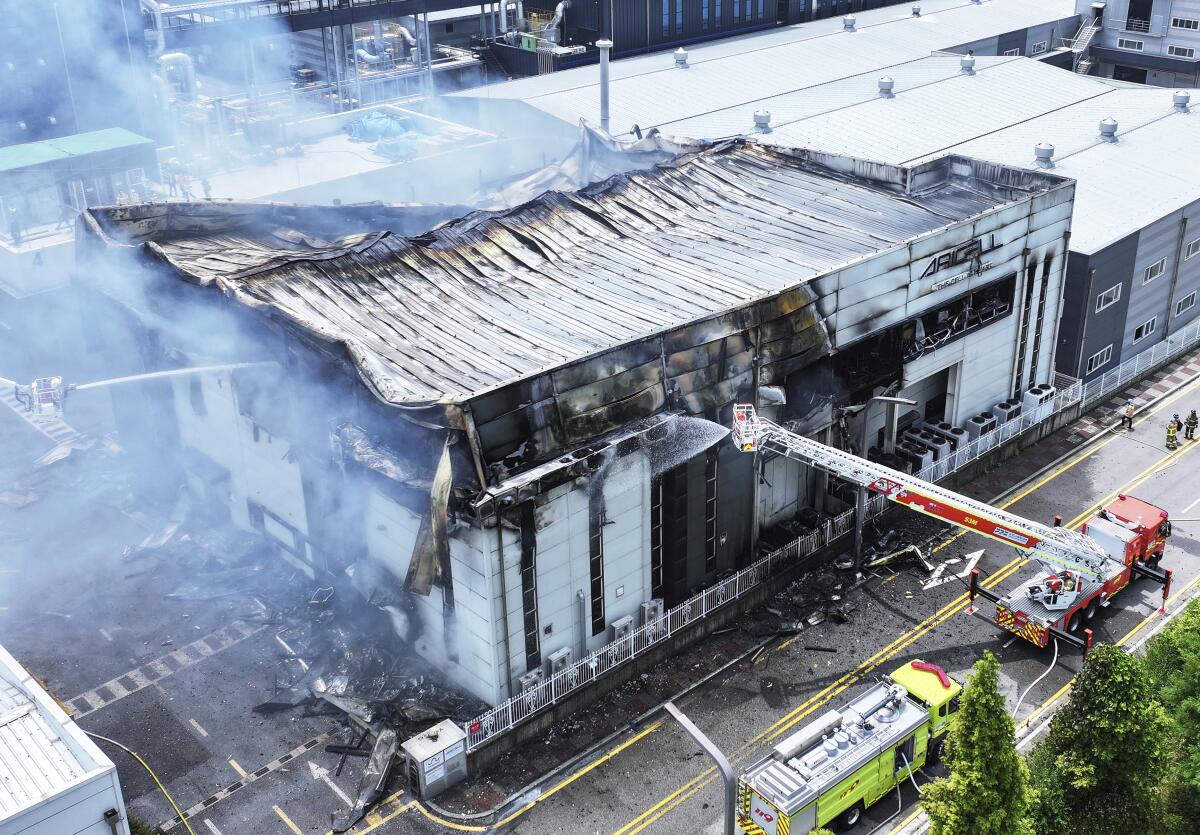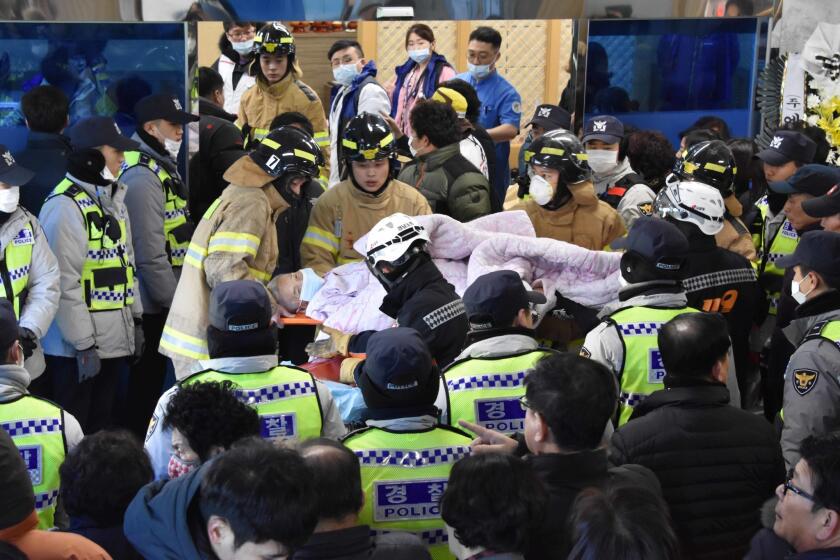A fire at a lithium battery factory in South Korea kills 22 mostly Chinese migrant workers

SEOUL, South Korea — A fire likely sparked by exploding lithium batteries swept through a manufacturing factory near South Korea’s capital on Monday, killing 22 mostly Chinese migrant workers and injuring eight, officials said.
The fire began after batteries exploded while workers were examining and packaging them on the second floor of the factory in Hwaseong city, just south of Seoul, at around 10:30 a.m., fire officials said, citing a witness. They said they would investigate the cause of the blaze.
The dead included 18 Chinese, two South Koreans and one Laotian, local fire official Kim Jin-young told a televised briefing. He said the nationality of one of the dead couldn’t be immediately verified.
In the past few decades, many people from China, including ethnic Koreans, have migrated to South Korea to seek jobs. Like other foreign migrants from Southeast Asian nations, they often end up in factories or in physically demanding and low-paying jobs shunned by more affluent South Koreans.
Kim said that one factory worker remained out of contact and rescuers continued to search the site. He said that two of the eight injured were in serious condition.
The names of the dead and injured were taped to an outdoor plaster wall, printed guides for relatives trying to locate the victims of a fast-moving and devastating hospital fire here on Friday.
The fire started at one of the factory buildings owned by a battery manufacturer, Aricell. He said that authorities would investigate whether fire extinguishing systems were at the site and if they worked.
Rechargeable lithium-ion batteries are ubiquitous in consumer goods from laptops to cellphones. They can overheat if damaged, defective or packaged improperly, leading to fires and explosions and making them a hazard for shipment aboard aircraft.
The video of the incident showed the factory’s second floor being engulfed with blaze, about 15 seconds after a small amount of white smoke was seen billowing from a battery, senior fire official Jo Seon-ho told a briefing later Monday.
Jo, citing the footage, said workers at the site mobilized fire extinguishers but failed to put out the blaze. They later rushed to an area where there was no exit before they likely inhaled toxic smoke and lost their consciousness, he said. The dead foreign workers were daily laborers so they were not likely familiar with the building’s internal structure, he added.
Fire officials said a total of 102 people were working at the factory at the time of the fire.
President Yoon Suk Yeol, wearing a safety helmet and a mask, visited the site with other officials. He expressed condolences to the dead people and ordered officials to put in place measures to effectively deal with battery-related fires, according to Yoon’s office.
Disaster: Most of the victims were minors, one 13. The blaze, which trapped its victims, apparently was ignited by a spark. One survivor alleges that the front door had been locked from the outside, blocking escape.
Prime Minister Han Duck-soo, the country’s No. 2 official, and Interior and Safety Minister Lee Sang-min also came to the site. Han asked officials to provide government assistance for funeral services and support programs for victims’ relatives, according to his office.
Monday’s blaze is one of the deadliest in South Korea in recent years.
In 2020, a fire at a warehouse being built in Icheon City, south of Seoul, killed 38 construction workers. In 2018, 46 people died after a fire ripped through a small hospital with no sprinkler systems in the southern city of Miryang. In 2008, 40 workers, 12 of them ethnic Koreans with Chinese nationality, died after a fire and accompanying explosions tore through a refrigerated warehouse in Icheon city.
South Korea has struggled for decades to improve safety standards and change widespread attitudes that regard safety as subservient to economic progress and convenience.
Kim writes for the Associated Press.
More to Read
Sign up for Essential California
The most important California stories and recommendations in your inbox every morning.
You may occasionally receive promotional content from the Los Angeles Times.











